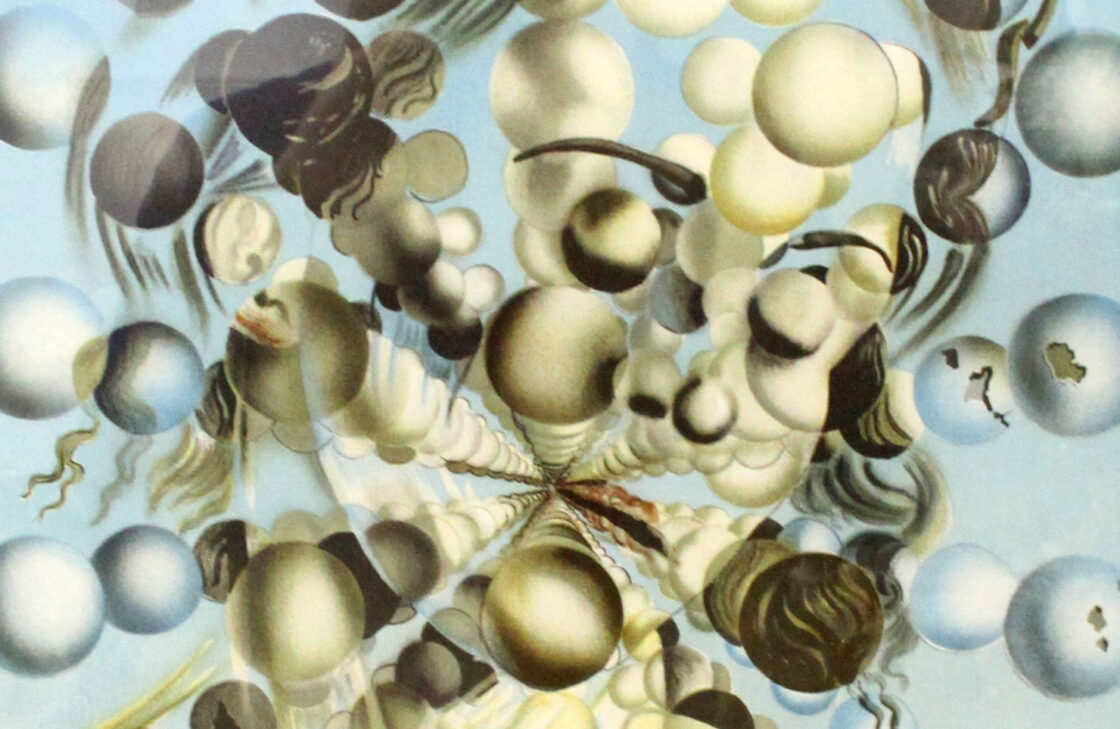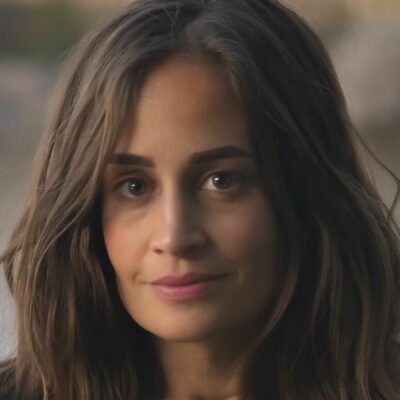Experiments in Poetry
with Elizabeth Winder

May 8, 2024
10 Weeks
Original price was: $645.00.$550.00Current price is: $550.00.
Zoom meetings are Wednesdays at 7 PM Eastern
Are you ready to see poetry in a totally new light? Join me for a deep dive into the wild world of experimental poetry. Each week, you’ll draw inspiration from the most radical, innovative, and imaginative poets in literary history, master their techniques, and write new exciting poems of your own!
Create wild, baroque worlds with the visionary Lucie Brock-Broido, sleep with the dictionary like Harryette Mullen, experiment with Japanese syllabics, wordplay and jazz. Descend into the urban underworld with Arthur Rimbaud and Alice Notley, explore the world of visual poetry, landscape poetry, and altered books.
See old poets through fresh eyes: how Gerard Manley Hopkins’s radical syntax influenced Bob Dylan, Anne Carson’s wildly unconventional take on Greek mythology, and Myriam Gurba’s queer interpretation of the groundbreaking Modernist juggernaut Tender Buttons.
Elevate your writing and expand your understanding of what poetry can do. Experiment with syntax and subject. Try your hand at techniques like collage and pastiche. Learn about poetic movements like Italian Futurism, French Surrealism and New York Dada, and experiment with their generative word games like Exquisite Corpse. (We’ll play that one as a class!)
Above all, cultivate a sense of possibility, experimentation, and play!
This is a weekly live course where we’ll explore new poets and their innovative approaches, as well as workshop each other’s poems. You’ll write a new poem each week, using fresh techniques discussed in class. I’ll meet with you individually twice on Zoom over the course of ten weeks to discuss your work, as well as give you individual weekly written feedback on WetInk.
By the end of these ten weeks, you’ll have expanded your creative and linguistic imagination, mastered several experimental poetry techniques and refined your writing craft in poetry and beyond. You’ll never look at poetry the same way again!
Who This Course is For:
If you want to expand your mind and elevate your poetry, this class is for you. This is a generative class and we will be writing one poem a week.
Learning and Writing Goals
Learning Goals
In this course, you will:
- Cultivate a more engaged and critical relationship with language.
- Learn to spot cliches and predictable phrases and pairings.
- Experiment with vocabulary, grammar, titles, syntax, shape and subject matter.
- Develop syntactical and lyrical skills that will elevate your future writing in poetry and prose.
Writing Goals
In this course, you will:
- Write ten original poems using fresh techniques discussed in class.
- Collaborate as a class using innovative Surrealist games to compose new poems.
- Have two poems revised and ready for publication.
Zoom Schedule
We will meet on Zoom Wednesdays at 7 PM Eastern.
Weekly Syllabus
Week One: Curiosity and Subject—Mary Jo Bang, Brenda Hillman, Cole Swensen
Get creative with poets who approach subject through the lens of reinvention and discovery with topics as diverse as the Cathars, silent movie stars, and seventeenth century gardens.
Assignment: Select a historical document, a photograph, old map, film clip or artifact and write a poem that that delves into the artifact’s layers of meaning. Or simply immerse yourself in a subject that fascinates you and write a poem that plays with the findings of your research.
Week Two: Sleeping With the Dictionary—Myriam Gurba, Harryette Mullen, Gertrude Stein
Break with traditional forms, experiment with syntax, play with rhythm and repetition, explore themes of identity, perception, and language itself.
Assignment: Select a short passage from a book, a newspaper, a snippet of overheard conversation. Apply Mullen’s technique of linguistic collage by dissecting and rearranging the words and phrases, playing with syntax, grammar, and vocabulary to create a new poetic composition.
OR
Write a poem inspired by Gertrude Stein’s exploration of repetition and linguistic experimentation. Choose a single word or short phrase and repeat it throughout your poem, allowing its meaning and sound to shift and evolve with each repetition.
Week Three: The Visionaries—William Blake, Lucie Brock-Broido and Brenda Shaughnessy
William Blake famously wrote about the importance of imagination as a creative and visionary force. Explore Brenda Shaughnessy and Lucie Brock-Broido’s baroque landscapes, liminal spaces and sonically rich verse.
Assignment: Explore the labyrinthine corridors of the imagination and write a poem that invites readers to peer beneath the surface of the ordinary.
Week Four: Rebels from Hell—Arthur Rimbaud, Charles Baudelaire, Alice Notley, Pattie Smith
French poets Charles Baudelaire and Arthur Rimbaud were no strangers to the darker aspects of human experience. Similarly, The Descent of Alette by Alice Notley immerses the reader in a hallucinatory subterranean landscape, where the protagonist embarks on a journey through a fantastical underground realm.
Assignment: Drawing inspiration from Baudelaire’s exploration of urban melancholy and Alice Notley’s unusual rhythms, write your own cityscape poem.
Week Five: L-A-N-G-U-A-G-E Poets—Ron Silliman, Leslie Scalapino, Susan Howe
Embrace the L=A=N=G=U=A=G=E poet’s radical experimentation and disrupt conventional syntax, grammar, and vocabulary.
Assignment: Write a poem that plays with syntax, grammar, and typography to create a poem that defies conventional narrative or lyric structures. Or borrow Ron Silliman’s modular structure, organizing your poem into discrete units or “blocks” of text.
Week Six: Concrete, Collage, and Visual Poetry—Lenora des Barros, Rosemarie Waldrop, Amanda Berenguer Ian Hamilton Finlay, George Herbert, Augusto Campos, Henri Chopin
Explore the interplay between visual and textual elements in poetry. Learn to shape and transform language by experimenting with form, space, and typography.
Assignment: Write a poem inspired by the concrete poets, where visual elements enhance and interact with textual meaning.
Week Seven: Radical Syntax—Gerard Manley Hopkins, Sylvia Plath and Bob Dylan
Gerard Manley Hopkins’ sprung rhythm, compound adjectives, revitalization of Middle-English, and other linguistic innovations have influenced writers (and musicians) from Bob Dylan to Sylvia Plath.
Assignment: Write a poem drawing on Hopkins’ love of compound adjectives and neologisms to create fresh and unexpected images.
Week Eight:The Surrealists and Their Friends—Andre Breton, Mina Loy, Robert Desnos, Man Ray, Tristan Tzara, William S Burroughs
Unlock the creative potential of the subconscious mind with the experimental games of the Surrealists!
Assignment: In the avant-garde spirit of the Surrealists, write a cut-up, Derive, or automatic poem.
Week Nine: Tom Phillips, Mary Ruefle, Isobel O’Hare
By repurposing existing texts, blackout poetry challenges traditional notions of authorship by creating a dialogue between the original source material and the vision of the poet.
Assignment: Unlock hidden meanings and associations within the confines of existing text and write your own blackout poem.
Week Ten: Experiments in Address-—Lucie Brock Broido, Anne Carson
In Autobiography of Red, Anne Carson reinterprets the story of Hercules, while Lucie Brock-Broido addresses Emily Dickinson and Miss Havisham in The Master Letters.
Assignment: Write your own poetic interpretation of an ancient, historical or fictional narrative, adding your own layers of meaning and allusion.
Student Feedback for Elizabeth Winder:
Elizabeth was fantastic. She met with us weekly to review our pieces, offering excellent suggestions for improvements and changes that made the pieces come together. She was very positive and encouraging and took time to explain what she was thinking. She listened to me when I explained what I was trying to achieve and helped come up with concrete ideas to reach the goal. Elizabeth Speziale
May 8, 2024
10 Weeks
Original price was: $645.00.$550.00Current price is: $550.00.
Zoom meetings are Wednesdays at 7 PM Eastern

